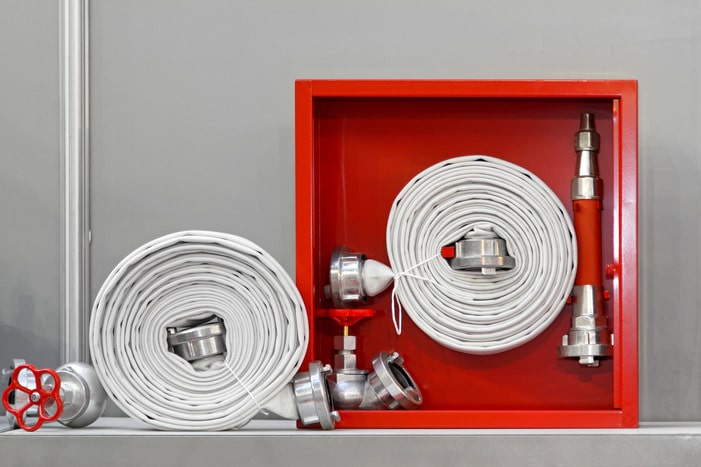
- July 3, 2023
- |security guard company
- | 0
Fire Hazards and Their Potential Risks –
As a leading fire watch guard company, XPressGuards recognizes the critical importance of understanding fire hazards and their potential risks. Fire incidents can have devastating consequences, causing loss of life, property damage, and financial losses. In this article, we will delve into the various types of fire hazards that fire watch guards encounter and explore the potential risks associated with each. By gaining a comprehensive understanding of fire hazards, fire watch guards can effectively identify and mitigate risks, ensuring the safety of individuals and protecting valuable assets.
1. Electrical Hazards
Electrical hazards pose a significant risk of fire. Faulty wiring, overloaded circuits, damaged electrical equipment, or improper installation can result in short circuits and electrical sparks that can ignite combustible materials. Fire watch guards must be vigilant in identifying signs of electrical hazards, such as flickering lights, burning smells, or unusual heat emanating from electrical devices.
2. Flammable and Combustible Materials
Flammable and combustible materials are a common fire hazard in various settings, including industrial facilities, construction sites, and storage areas. Liquids, gases, solvents, fuels, and chemicals with low flashpoints can easily ignite and rapidly spread fires. Fire watch guards must identify proper storage and handling procedures for these materials, ensuring compliance with safety regulations and implementing measures to prevent accidental ignition.
3. Heating Systems and Appliances
Heating systems, such as furnaces, boilers, and space heaters, present fire hazards if not properly maintained or used. Poorly installed or malfunctioning equipment, clogged ventilation systems, or improper fuel storage can lead to overheating, sparks, or ignition. Fire watch guards should regularly inspect heating systems, monitor their operation, and ensure compliance with safety guidelines to mitigate potential fire risks.
4. Cooking Equipment and Appliances
Cooking equipment, including stoves, ovens, fryers, and grills, poses a significant fire hazard, particularly in commercial kitchens and restaurants. Grease buildup, unattended cooking, and improper handling of flammable materials increase the risk of kitchen fires. Fire watch guards must emphasize proper maintenance, regular cleaning, and employee training on fire safety protocols to minimize the likelihood of kitchen fires.
5. Open Flames and Smoking
Open flames, such as candles, torches, or bonfires, can quickly ignite surrounding materials and cause uncontrolled fires. Additionally, smoking in prohibited areas or improper disposal of smoking materials can lead to fire incidents. Fire watch guards play a crucial role in enforcing strict regulations regarding open flames and smoking, ensuring compliance, and maintaining a fire-safe environment.
6. Hot Work Operations
Hot work operations, including welding, cutting, grinding, or soldering, generate sparks, heat, and open flames that can ignite nearby flammable materials. Fire watch guards are essential in monitoring and enforcing safety protocols during hot work operations, such as ensuring fire-resistant barriers, availability of fire extinguishers, and proper permits. Their vigilance helps prevent fire incidents and ensures the safety of personnel and property.
7. Improper Storage and Housekeeping
Cluttered or improperly stored materials increase fire risks. Blocked pathways, storage of flammable materials near ignition sources, and poor housekeeping practices can contribute to the rapid spread of fires. Fire watch guards are responsible for identifying and addressing improper storage practices, promoting regular cleaning and organization, and maintaining clear pathways and access to firefighting equipment.
8. Arson and Vandalism
Intentional acts of arson and vandalism are significant fire hazards, especially in vacant buildings, construction sites, or public areas. Fire watch guards must remain vigilant, monitoring suspicious activities, and reporting any signs of vandalism or potential arson attempts. By maintaining a visible presence and conducting regular patrols, fire watch guards deter potential arsonists and reduce the risk of deliberate fire incidents.
Understanding fire hazards and their potential risks is crucial for fire watch guards to fulfill their responsibilities effectively. By recognizing the various types of fire hazards, such as electrical hazards, flammable materials, heating systems, cooking equipment, open flames, hot work operations, improper storage, and arson/vandalism, fire watch guards can identify potential risks and implement proactive measures to prevent fire incidents.
XPressGuards is committed to providing highly trained fire watch guards who possess comprehensive knowledge of fire hazards, enabling them to safeguard lives, protect property, and ensure a fire-safe environment. Through continuous education, vigilance, and adherence to fire safety protocols, fire watch guards play a vital role in minimizing fire risks and protecting communities and assets from the devastating consequences of fire incidents. Contact us to learn more.


